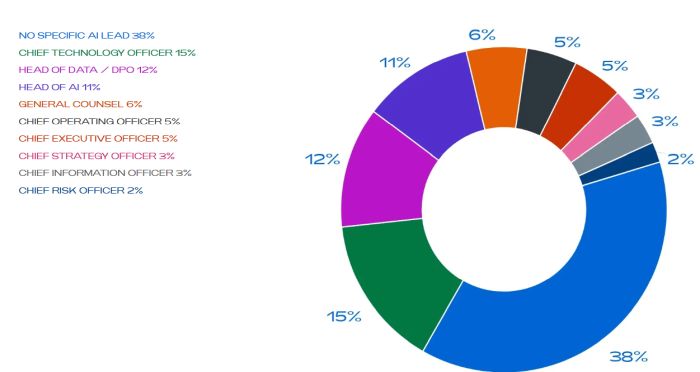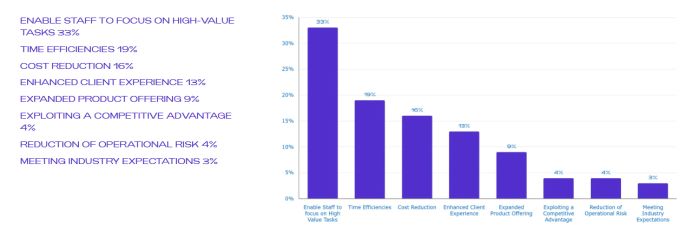- within Law Department Performance and Antitrust/Competition Law topic(s)
The survey revealed that AI adoption is gaining momentum across industries, with nearly all organisations surveyed implementing AI into their operations in one way or another.
While nearly all organisations allow their employees access to certain Gen-AI models, the overall results of the survey show that organisations have been slower to move into the next phases of AI adoption.
The survey does show that we still have some way to go until AI is central to how organisations operate, with only 10% reporting that AI is fundamental to their operations and 3% still not using AI at all.

While some organisations have created a dedicated 'Head of AI' role, 38% of all organisations surveyed confirm that no individual has yet been assigned responsibility for the implementation of their AI Strategy.
Who's in Charge?
The results of the survey indicate that for those organisations who have designated responsibility for the implementation of AI Strategy to a single individual, there is currently no consensus as to where in the organisation this role sits.
While some organisations have created a dedicated 'Head of AI' role, 38% of all organisations surveyed confirm that no individual has yet been assigned responsibility for the implementation of their AI Strategy.

Why Organisations are Using or Plan to Use AI
Overall, the responses indicate that organisations continue to view AI primarily as a productivity-enhancing tool and not as a means to create a competitive advantage within their respective industries.
When asked why the organisation is choosing to use AI, 33% of respondents confirmed that freeing up employees to work on value-adding tasks was their first priority, with time efficiencies (19%) and cost reductions (16%) recognised as the second and third priorities, respectively.
In contrast, enhanced client experience was ranked as first priority for only 13% of those surveyed, with the expansion of product offerings (9%) and the creation of competitive advantage (4%) following closely behind.

This article contains a general summary of developments and is not a complete or definitive statement of the law. Specific legal advice should be obtained where appropriate.


